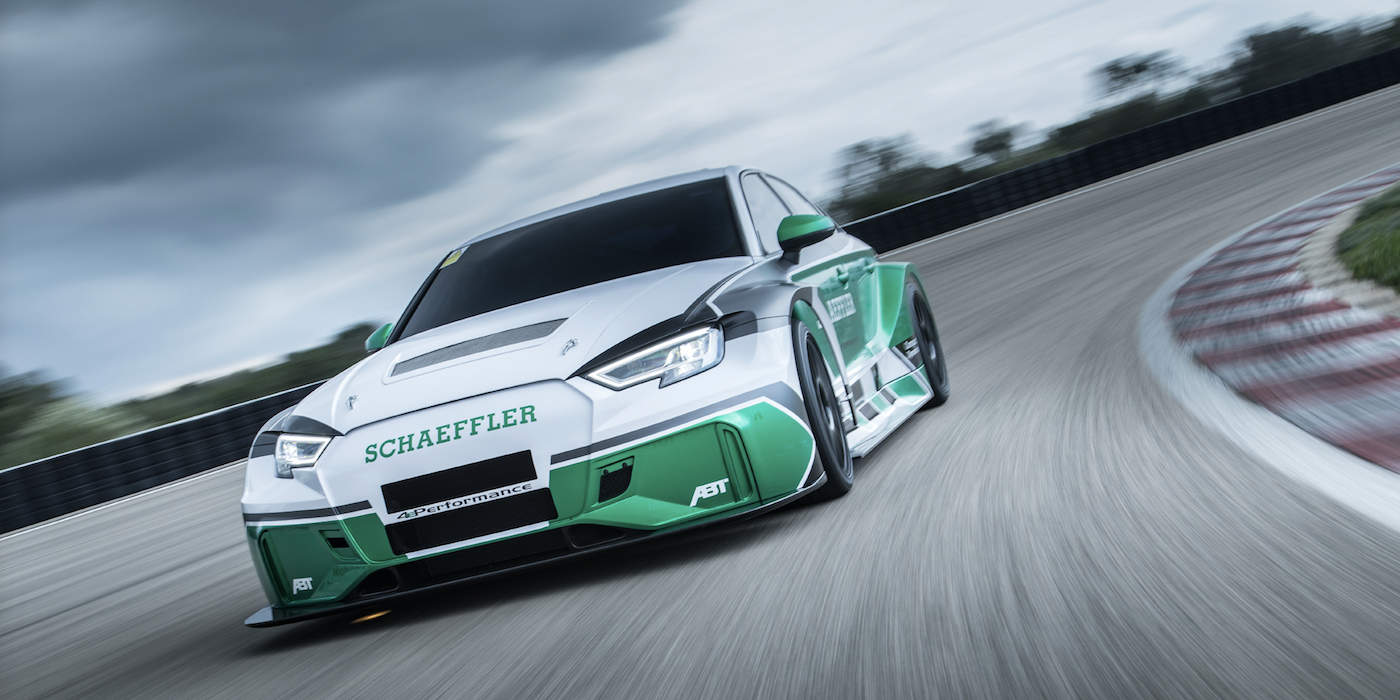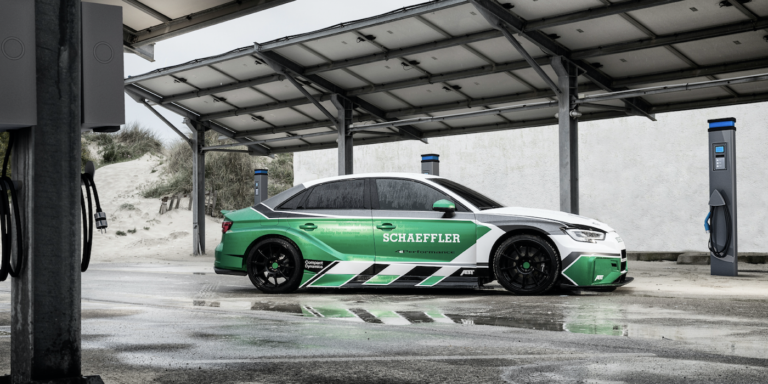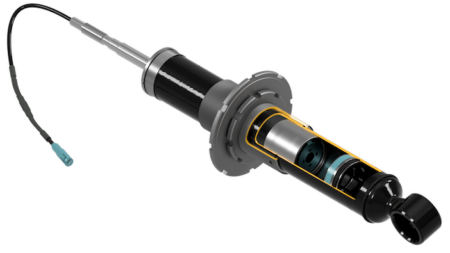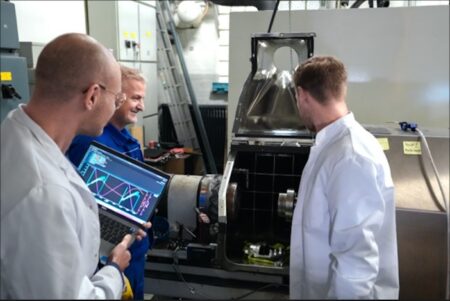Automotive technology giant Schaeffler has developed a concept car that demonstrates how the technologies it has developed for the Formula E electric racing series can be applied to the volume production road car of the future. Named the ‘Schaeffler 4ePerformance’, the concept vehicle is the product of technological collaboration between various development departments within Schaeffler Group, including Schaeffler Motorsports, Schaeffler E-Mobility, Schaeffler Engineering and Compact Dynamics. The divisions also worked with tuning company ABT Sportsline to gain expertise with regard to creating an entire vehicle to house these technologies.
The car is based on the steel body of an unspecified “high-volume production vehicle”, according to Schaeffler, powered by four 220kW drives from the ABT Schaeffler FE01 Formula E racing car, driven by two batteries with an overall capacity of 64kWh. Each individual motor is directly connected to a wheel by means of a spur gear unit, while two motors share one gearbox housing, forming an electric twin axle. This architecture enables a torque vectoring effect via selective control of drive torque to individual wheels.

Simon Opel, director of special projects motorsports at Schaeffler explained the next steps in the development of the vehicle dynamics for the 4ePerformance: “This vehicle is a test laboratory on wheels thanks to its free-scaling options for the drive power. We are currently testing and developing our own driving dynamics control system, which is based on physical vehicle and wheel modeling. We have been learning a lot, especially in the area of software-based driving dynamics control systems”.
Schaeffler currently offers a range of products for electric mobility, from technologies for 48V hybridization and high-voltage hybrid modules which are in volume production today, through to modular electric axles that the company says will soon be applied in luxury electric vehicles in Europe, after first volume-production runs have been offered in China. The company’s initial thoughts for the technologies in the 4ePerformance are that they could be a supplement to volume-production drive concepts for high-performance electric sports cars.





